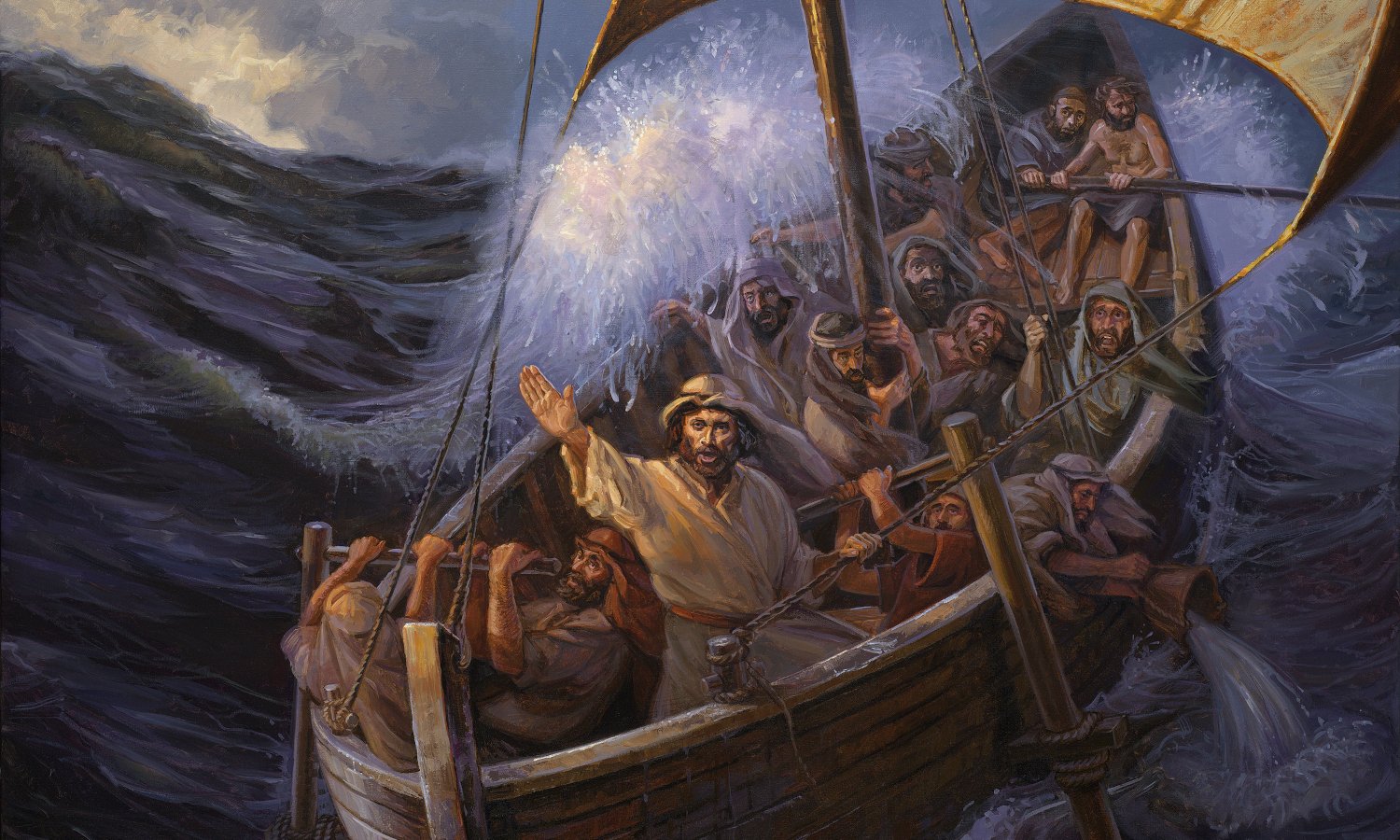
The first few chapters of the Bible describe how God made everything wonderful, including Adam and Eve, the first pair to ever be together. However, because of their transgression, the first humans badly harmed man’s connection with the Lord. Additionally, their disobedience brought death and suffering to the planet.
However, the tale does not finish there. God vowed to make the human race hostile toward Satan since he had tempted them to sin. A child of Adam and Eve would bruise Satan’s head, according to God.
Promises about the Messiah
God provides additional information about this impending Descendant later in the Bible. He would come from Abraham’s line and bring blessings and goodness back to the earth. He is shown as a monarch who will bring prosperity, harmony, and peace. He will come from David’s royal line (Jeremiah 33:15–17, for example).
A few heroes can be found in Israel’s history, but none of them ended up being the prophesied Savior. Since they were all sinners, none of these guys could triumph over evil. Quite the reverse—both the people and their monarchs proved to be so wicked that God banished them. However, the prophets persisted in pointing to a Man who would deliver the Israelites from their dire circumstances, bring about spiritual restoration, and set everything right. Certain predictions indicated that He would not be your typical person.
For example, the prophet Isaiah declared that He would die in the place of humanity (Isaiah 53:5), but in a another chapter, he refers to Him as “Mighty God, Everlasting Father, Prince of Peace,” whose rule will never come to an end. In addition, he states in Isaiah 35:5–6 that “waters break forth in the wilderness, and streams in the desert” and “the eyes of the blind shall be opened, and the ears of the deaf unstopped.”
He “is to be ruler in Israel, whose coming forth is from of old, from ancient days,” according to the prophet Micah (Micah 5:2). Numerous prophecies in the Old Testament also refer to God becoming “King over all the earth” and the political restoration of Israel (see Zechariah 12:8–9; Zechariah 14:9).
Hopes and expectations
Therefore, the Old Testament has several names, prophecies, and descriptions of Someone who will come to bring about positive change, but it can be challenging to bring these together into a cohesive whole. Will one person be able to fulfill all of these requirements? And will everything go place at once? Providing answers to these issues is not simple.
Over the ages, the Israelites formed certain anticipations for the impending Savior, whom they primarily referred to as “Messiah” (a Hebrew term that is rendered “Christ” in Greek). This word, which means “anointed one,” was formerly used to refer to rulers who had been chosen by God and given the necessary tools for the job.
The expectation of the Israelites was that the arrival of the Messiah would usher in a period of social, political, and spiritual recovery. They were particularly drawn to the idea of a King who would bring back their political independence because they were being oppressed by other countries. For many, this element was more important than spiritual healing, and it was also far more alluring than Isaiah’s picture of the Lord as a Servant who would be rejected and crushed.
Jesus did not meet all expectations
John the Baptist announced to Jesus that He was going to begin His public ministry. The people were informed by this prophet that they should turn from their sins and that God’s Kingdom was coming. He was the one that Isaiah had predicted would come (see Mark 1:2–4).
John the Baptist, however, remained unsure if Jesus was the Messiah. King Herod ordered his disciples to question Jesus while he was imprisoned: “Are you the one who is to come, or shall we look for another?” (Luke 7:19). Jesus did not carry out John’s prophecy that he would be a judge who would exact God’s vengeance (Matthew 3:10–12).
See John 1:41 and Matthew 16:16 for evidence that Jesus’ followers did in fact think He was the Messiah. However, they were not entirely aware of what this meant. They hoped He would ascend to the throne and drive out the oppressive Romans. They were unaware that the Messiah had come to die and go through suffering in their stead. Even though Jesus had predicted this several times, they were nonetheless taken aback when it really occurred (see Mark 8:31; 9:31; 10:34).
Acts 1:6 and Luke 24:21 demonstrate that even after Jesus’ crucifixion, they continued to aspire for Israel’s political restoration. While Jesus does not claim that this will never occur, bringing about political freedom is not His or the disciples’ responsibility. This Gospel needs to be spread over the entire planet because He has come to set people free from their spiritual captivity (Acts 1:7-8).
Jesus is the Messiah
Jesus is appropriately referred to as the “Christ,” as He is the anticipated Messiah. In Luke 24:25–27, He refers to His followers as “foolish” for not accepting the prophecies about Him and the idea that the Messiah would have to go through suffering, die, and then rise again. “Go and tell John what you have seen and heard: the blind receive their sight, the lame walk, lepers are cleansed, the deaf hear, the dead are raised up, and the poor have good news preached to them,” Jesus responds to John the Baptist’s question (Luke 7:22).
These echoes of Isaiah 35:5 and Isaiah 61:1 are obvious allusions for a Jew familiar with the Old Testament texts. Jesus demonstrates that He is, in fact, bringing hope and restoration to centuries-old predictions. His miracles served as indicators that He was the Messiah rather than as “just” ways to assist the those in need.
“I adjure you by the living God, tell us if You are the Christ, the Son of God,” the high priest questioned Jesus after his arrest. “You have said so,” Jesus remarked to him. However, I can assure you that going forward, you will witness the Son of Man ascending the clouds of heaven and sitting at the right hand of Power. Matthew 26:63–64. For blasphemy, Jesus was found guilty and sentenced to death, ending the debate. His death resulted from His declaration that He was the Christ.
Not all prophecies have been fulfilled yet
According to Jesus’ response in Matthew 26:63–64, His job is not yet finished. Indeed, He has completed His work as a Savior (John 19:30). However, He will return to judge humanity from the clouds of heaven. He has already arrived as a Savior who declares pardon and demonstrates God’s love. (See Revelation 20:12; Matthew 25:31–32; Acts 10:42; 2 Timothy 4:1) Those who rejected his offer of grace will be condemned when [He returns as Judge] at the end of time. After that, He will ascend to the throne and rule gloriously for all eternity (Hebrews 1:8, Revelation 11:17–18).
In Jesus, numerous predictions regarding the Messiah have already come to pass. This is evident for some predictions, such as Zechariah 9:9, which is one such example. “Look, your King is approaching you; He is just and saved; he is modest and riding a donkey, a colt, a donkey foal.”
This was realized in John 12:14–16, as Jesus made his triumphant entry into Jerusalem. Some predictions came to pass in surprising ways. For instance, Jesus declared in John 18:36 that although He is a king, His kingdom is spiritual and not “of this world.” There are still prophesies that need to be fulfilled in full, particularly the ones that describe the Messiah as King and Judge [at Jesus’ second coming].
Many Jews don’t believe that Jesus is the Messiah
Many Jews did not accept Jesus as the Messiah when He was alive. And nothing has changed since then. Though they are few, there are those who identify as “Jewish Christians” or “Jewish followers of Jesus.”
The Bible does, however, offer hope that “all Israel will be saved” (Romans 11:25-32). The prophet Zechariah prophesied in the Old Testament that this would happen: “And I will pour out a spirit of grace and pleas for mercy on the house of David and the people of Jerusalem, so that, when they look on Me, on Him whom they have pierced, they shall mourn for Him, as one mourns for an only child, and weep bitterly over Him, as one weeps over a firstborn.” According to Zechariah 12:10 and 13:1, “a fountain shall be opened on that day for the house of David and the inhabitants of Jerusalem, to cleanse them from sin and uncleanness.”
Thanks to GospelImages for the wonderful painting.





